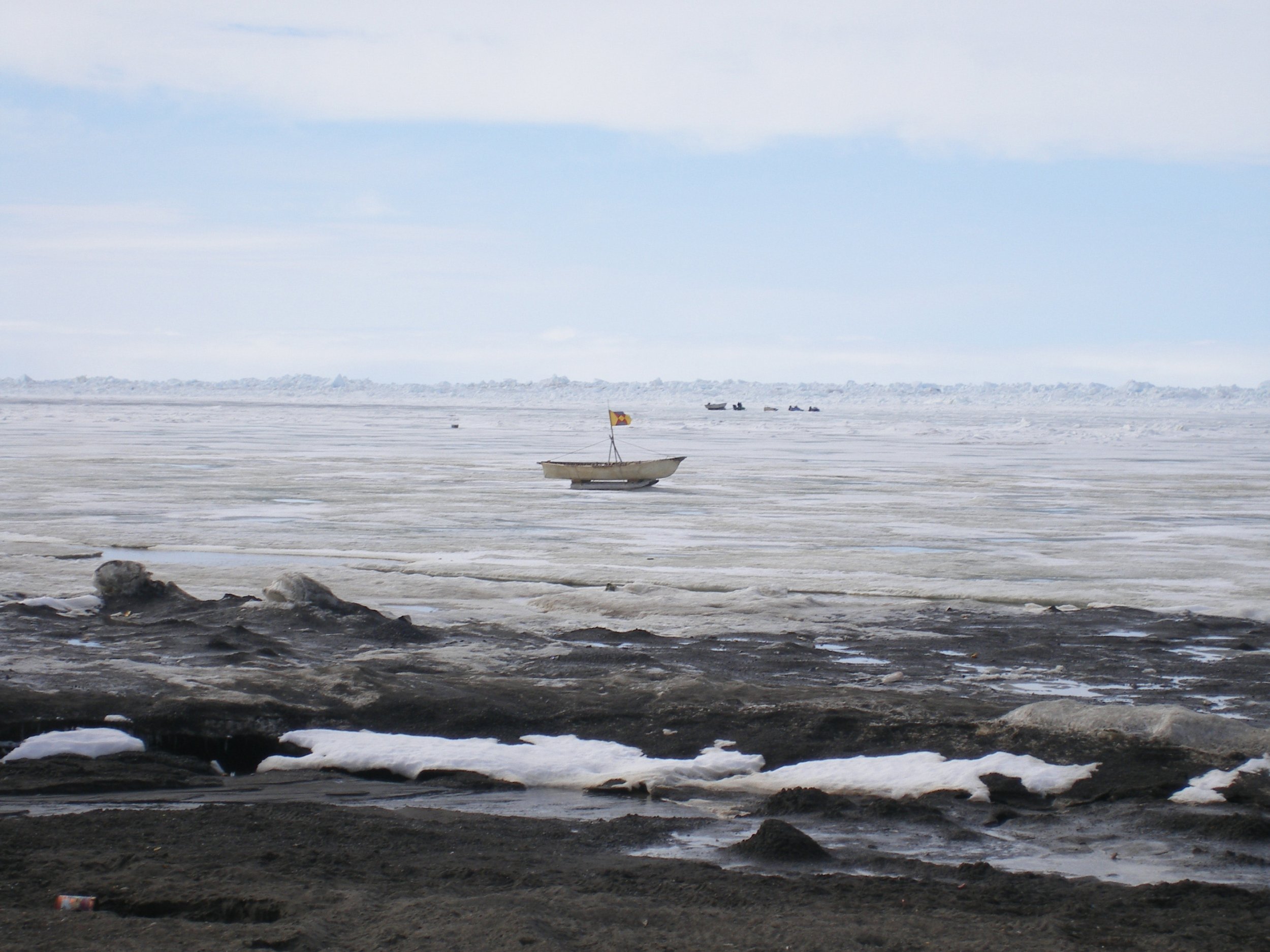
As a good dermatologist will tell you, proper exfoliation can be a crucial part of any skincare routine. There are innumerable brushes, cleansers and other tools that promise to sweep away dead cells, leaving skin softer and silkier.
Humans pay through the nose for it, too. Bowhead whales, on the other hand, have figured out how to do it for free. A group of scientists from the University of British Columbia sent drones over Cumberland Sound in Canada to film a peculiar "beauty" routine performed by whales. Their findings were published Wednesday in PLoS One.
Bowhead whales, of which there are about 10,000 in the world, have the longest lifespan of any marine animal—around 200 years! Adults can be nearly 65 feet long——big enough to stretch across four lanes of highway traffic, according to the National Oceanographic and Atmospheric Administration's website—and they can weigh over 75 tons. They spend most of their days in the Arctic.
It was marks on their skin that prompted researcher Sarah Fortune and her team to wonder if the bowheads were using rocks as exfoliators, a ritural scientists had believed was confined to beluga and killer whales. (A beluga's skin is similar to the bowhead's, The Verge reported.)
More than 80 whales were included in the study; nearly half had the telltale marks on their skin. The drones allowed Fortune to confirm that bowheads do, indeed, indulge in this ritual. "It's like a day spa for the whales," she told Hakai. "Think of it as using a pumice stone to get a callus off your foot, using the physical environment to help exfoliate the skin."
The whales, of course, are not doing it for cosmetic reasons; it's believed they molt their skin to get rid of parasites or buildups of other organisms, according to the paper. The skin may also be damaged from sun exposure.
Whales shed their skins once a year, as they move toward warmer waters, the New York Times noted. It's possible that the temperature shift contributes to the molting, and, according to the paper, sloughing the skin off all at once might reduce the metabolic cost to the whales.
Whether the molting happens only during the summer remains unclear. No word, either, on what moisturizer the whales apply after exfoliation.
Uncommon Knowledge
Newsweek is committed to challenging conventional wisdom and finding connections in the search for common ground.
Newsweek is committed to challenging conventional wisdom and finding connections in the search for common ground.
About the writer
Kate Sheridan is a science writer. She's previously written for STAT, Hakai Magazine, the Montreal Gazette, and other digital and ... Read more
To read how Newsweek uses AI as a newsroom tool, Click here.








